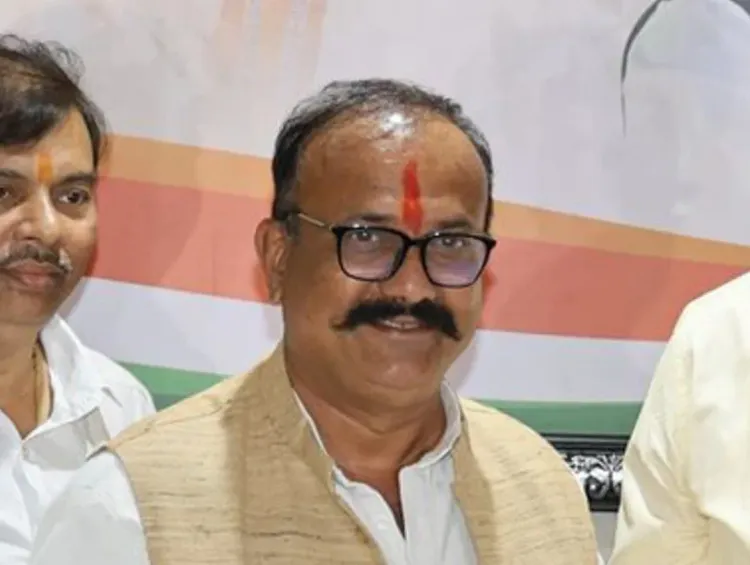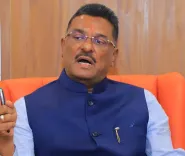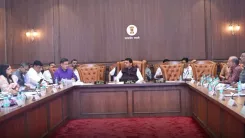Is Congress Taking a Stand Against the Public Security Act in Maharashtra?

Synopsis
Key Takeaways
- Congress is actively opposing the MSPS Act.
- Symbolic burnings are planned to raise awareness.
- The Act is criticized for targeting dissenters.
- Concerns exist about its impact on marginalized communities.
- Political tensions surrounding civil rights are escalating.
Mumbai, July 14 (NationPress) The president of Maharashtra Congress, Harshwardhan Sapkal, declared on Monday that the party stands firmly against the Maharashtra Special Public Security (MSPS) Act. He announced plans for symbolic burnings of the Act in every district.
During a press conference, Sapkal emphasized that the purpose behind the MSPS Act is deeply troubling.
"The real beneficiaries of this legislation will be the government and the industrialists backing it. Those who have seized land and seek privileged access to the Shaktipeeth corridor will profit from this law," he asserted.
He highlighted that environmentalists, tribals in Gadchiroli, slum residents, and farmers who oppose the Shaktipeeth project could face imprisonment and property confiscation if they resist.
"The message is unmistakable: either support the government or stay quiet; dissent will be met with the full force of this Act," he stated.
Sapkal questioned whether advocating for constitutional values or promoting the teachings of Shivaji, Shahu, Phule, and Ambedkar equates to Maoism.
"Is it Maoist to advocate the principles of Mahatma Gandhi and Tukdoji Maharaj? Devendra Fadnavis must clarify. If these are Maoist thoughts, I will continue to voice them, and if Fadnavis wants to arrest me, he is welcome to try," he declared.
Sapkal also noted that if Fadnavis perceives leftist ideology as toxic, then the spread of actual poison in RSS shakhas must be exposed.
"Narendra Dabholkar, a lifelong campaigner against superstition, was murdered. Comrades Govind Pansare and Kalburgi, who enlightened the public through their writings, were also killed. The same forces behind those killings are targeting Sambhaji Brigade’s Pravin Gaikwad," Sapkal alleged.
Previously, Chief Minister Devendra Fadnavis stated in the state assembly that the Act does not target parties with leftist ideologies.
"It does not hinder left parties from functioning. The Act is unrelated to leftist parties like CPI and CPM, and the government honors their leaders," he claimed.
He also asserted that the Act is not aimed at individuals but at organizations, affirming that groups representing farmers and others are entitled to conduct protests without facing repercussions under the Act.





